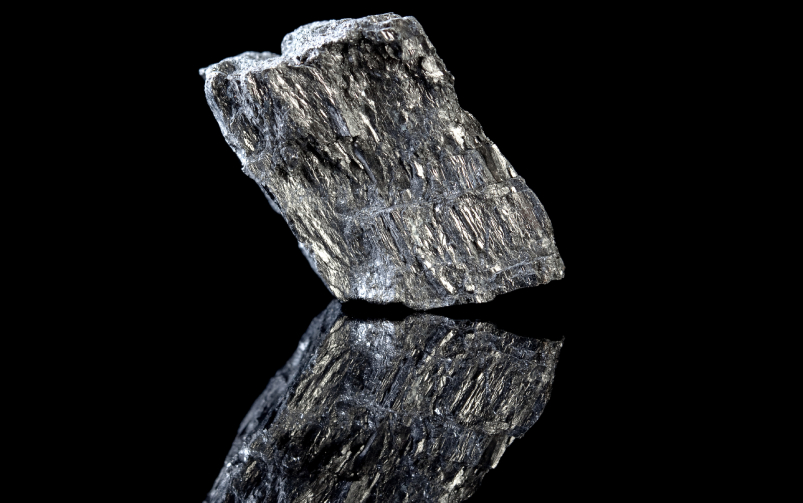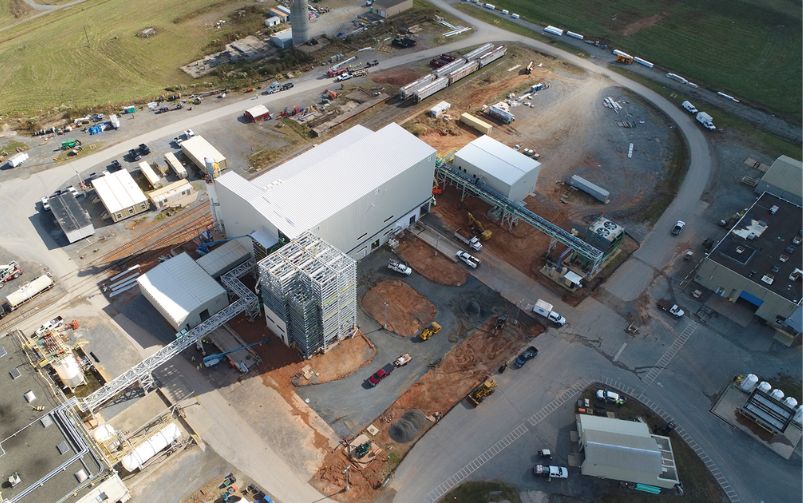Rio Tinto's US$40-million expansion of its Diavik diamond mine will extend the operation to at least early 2026. Courtesy of Rio Tinto.
Welcome back to your weekly mining news recap, where we catch you up on some of the news you may have missed. This week’s headlines include the suspension of ore processing operations at Cobre Panama, a new contractor for Gowest’s Bradshaw project and research into carbon-negative critical mineral recovery.
In last week’s recap, we incorrectly described the purchase of Sabina Gold & Silver as B2Gold’s first ownership stake in a Canadian project. That distinction belongs to the Australia Stock Exchange-listed Matador Mining and its Malachite exploration property in Newfoundland Labrador. Since November, B2 has had a 9.9% stake in the junior company.
Stillwater Critical Minerals has teamed up with researchers from Cornell University to explore less energy-intensive ways to increase the extraction of critical minerals at its Stillwater West project in Montana while also sequestering carbon. The research is funded by the U.S. Department of Energy, which is trying to develop an independent, domestic supply chain of critical metals that are key to the clean energy transition.
Teck Resources has officially announced its plan to separate its steelmaking coal business from its base metals operations, as reported by Business in Vancouver. Teck’s steelmaking coal assets will be used to create a separate publicly traded company called Elk Valley Resources, which will operate Teck’s four steelmaking coal mines in B.C. Teck Resources will be renamed Teck Metals Corp, a base metals company that focuses on copper with mines in North and South America including its flagship QB2 copper project in Chile, which is currently under construction. Teck will seek shareholder approval of the separation at its annual meeting, which is expected to be held in late April.
Rio Tinto will go ahead with a US$40-million expansion of its Diavik diamond mine in the Northwest Territories, as reported by Mining.com. The expansion will extend the operation to at least early 2026. The approved first phase of the expansion, which has been approved, will extend the underground mine below the existing A21 pit; a second phase will be submitted for approval in 2024. Diavik is Canada’s largest diamond mine in terms of production; Rio Tinto became its sole owner in 2021 after buying the 40 per cent share previously held by Dominion Diamond Mines.
First Quantum has suspended ore processing operations at its Cobre Panama mine due to a dispute with the Panama Maritime Authority (AMP), as reported by Kitco News. The AMP refused to permit copper concentrate loading operations at the mine’s port, though First Quantum believes it has satisfied the conditions laid out by the authority to continue shipments. First Quantum will start the partial demobilization of the more than 8,000 employees and contractors that make up the mine’s workforce. The company noted that negotiations with the Government of Panama are continuing and that operations may resume should permission from the AMP allow it.
Theo Yameogo from Ernst & Young shared his forecast for the performance of gold, silver, copper, nickel and iron in 2023. He predicted the stalled expansions of Canadian gold projects from the past two years to progress, and sustainability is expected to be the focus of many gold mining operations, while events such as China’s border reopening could result in an increased demand for copper and iron.
Rio Tinto has reported a 41-per cent fall in annual profit for 2022 and has more than halved its annual dividend, as reported by Mining.com. The company made a net profit of US$12.42 billion last year, down from US$21.09 billion in 2021; its full-year dividend was announced as US$4.92 per share, compared to a record US$10.40 per share in 2021. The company cited strict COVID-19 measures in China and their effect on iron ore and copper prices as the main cause, along with the impact of higher prices for energy and raw materials and higher rates of inflation.
The mining and metal sectors have recently been experiencing the largest bump in private technology investments in a while, as countries with net-zero targets make moves to secure the minerals needed for the clean energy transition. Data from Cleantech Group showed that financing for mining and metals technology companies almost tripled in one year, from US$370.6 million in 2021 to over US$1 billion in 2022, with battery metals such as lithium being the key theme to these investments. However, according to a report published by PwC, the cyclical nature of corporate deals means that a decline in such investments could follow.
Hecla Mining is set to acquire ATAC Resources for $31 million, including its Rackla and Connaught projects in Yukon, as reported by Mining.com. Earlier this month, ATAC rejected a $25 million offer from Victoria Gold. Hecla is already developing its Keno Hill silver project in Yukon, which is adjacent to the Rackla gold property. Hecla will also make a $20-million strategic investment into a new exploration company, which will hold ATAC’s remaining copper-focused assets.
Gowest Gold has chosen Dumas Contracting to resume underground development work at its Bradshaw gold deposit, north of Timmins, as reported by Northern Ontario Business. Dumas Contracting signed a four-year contract and is moving equipment to the site to begin working at Gowest’s only asset in April. Gowest secured a $25 million investment for the development in January and has also settled its lawsuit with its previous contractor, Cementation Canada.
Rio Tinto has signed a memorandum of understanding with BMW Group to supply it with low-carbon primary aluminum from its hydro-powered operations in Canada, as reported by Mining Technology. BMW will use the aluminum for the vehicle body components it produces at its plant in South Carolina, U.S. to reduce the carbon footprint of its vehicles. The companies will also deploy Rio Tinto’s blockchain sustainability solution, START, which provides supply chain traceability with information about provenance and ESG standards.
That’s all for this week. We'll be at SME in Denver next week, stop by Booth #2301 and say hi! If you’ve got feedback, you can always reach us at editor@cim.org. If you’ve got something to add, why not join the conversation on our Facebook, Twitter, LinkedIn, or Instagram pages?




